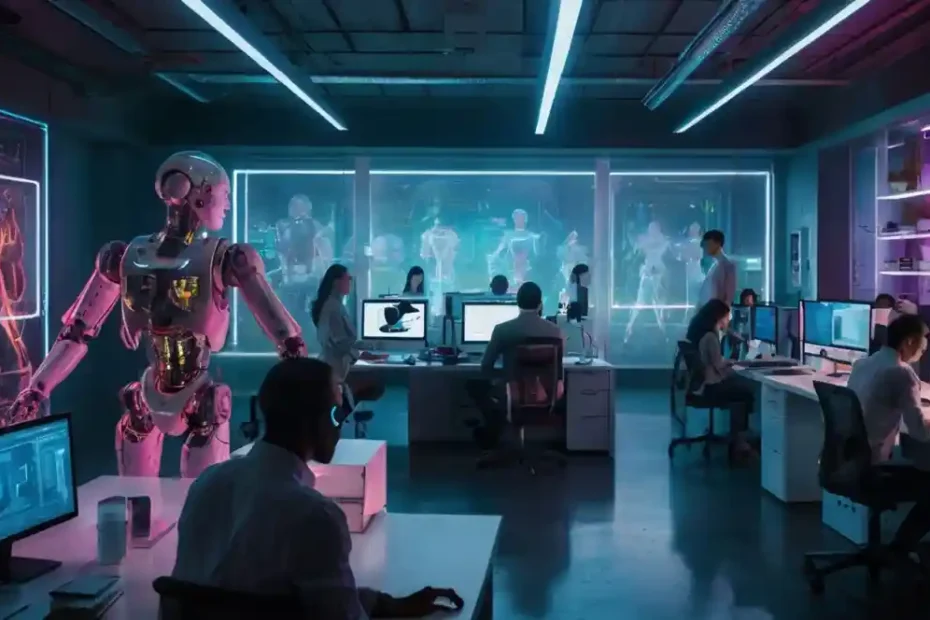Is your tech job at risk of being replaced by AI? This is a haunting question in the minds of many professionals, as artificial intelligence moves forward with an unprecedented pace. From mundane tasks to challenging issues, AI has been changing the game in so many industries that people ask themselves: Will AI take over tech jobs?
This isn’t about machines being faster or smarter. It is the fear of being eclipsed by the very essence of human ingenuity and dreams by cold, calculating algorithms. As the tech world zooms ahead, it is easy to feel a little uncertain. Behind this fear lies, however, an even deeper story: a story of challenges and opportunities and unmistakable resilience on the part of human creativity.
This blog penetrates to the core of this debate, peeling off layers of worry into reality- AI within the workforce. Together, we’ll try to unfold fears, facts-check, and catch a view of the future in this too-fast-paced tech landscape.
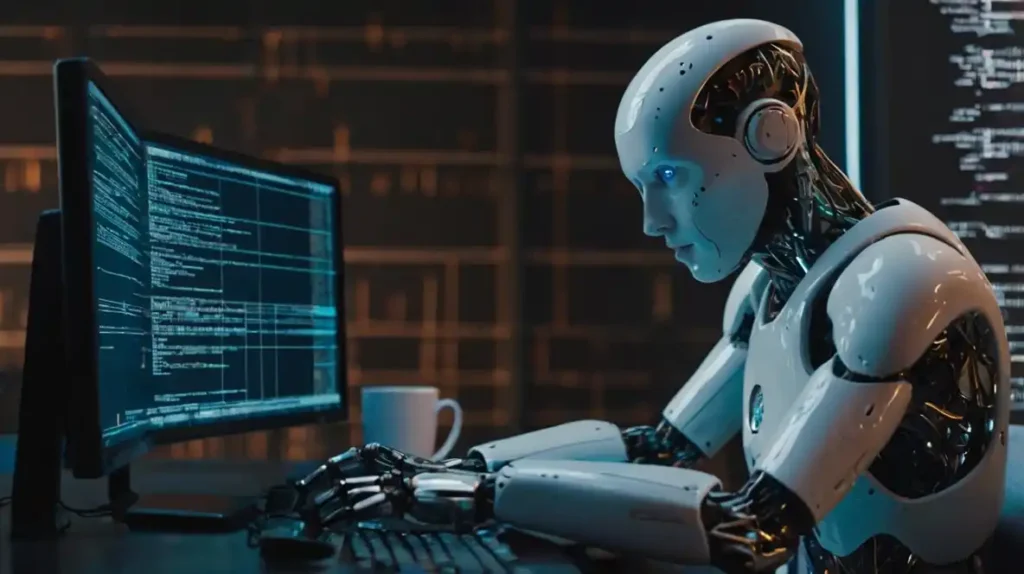
The Fear Factor: Why People Are Worried About AI Replacing Tech Jobs
Will AI Take Over Tech Jobs? Understanding the Anxiety
The fear of losing jobs to AI isn’t unfounded it’s deeply personal. Imagine dedicating years to mastering a skill, only to see a machine outperform you. For many in tech, this fear is a harsh reality. AI has already demonstrated its prowess in coding, automating IT support, and even debugging software faster than human teams.
Take, for example, the story of a software developer who watched an AI tool replicate weeks of his work in hours. While impressive, it’s also a stark reminder that no job feels truly safe anymore. Studies from leading institutes echo these sentiments, predicting that automation could impact up to 40% of jobs in the tech sector by 2035.
This anxiety is founded on more than numbers, though it’s about the human desire to be relevant in an increasingly mechanized world.
The Rapid Rise of AI in the Workplace
AI’s presence in the workplace is no longer futuristic; it’s here and now. From AI-driven chatbots replacing first-line IT support to machine learning algorithms revolutionizing cybersecurity, examples abound:
- Coding: AI-based tools such as GitHub Copilot complete the code for developers.
- IT Support: ChatGPT-like systems troubleshoot and resolve user queries in real time.
- Cybersecurity: AI Predicts and Prevents Breaches with Stunning Precision.
While these developments improve efficiency, they do the opposite regarding fear of displacement. But here’s a silver lining: AI doesn’t need to replace humans but augment them. This enables professionals in technology to learn collaboration with AI, opening up new careers that will redefine one’s role in a fast-moving world.
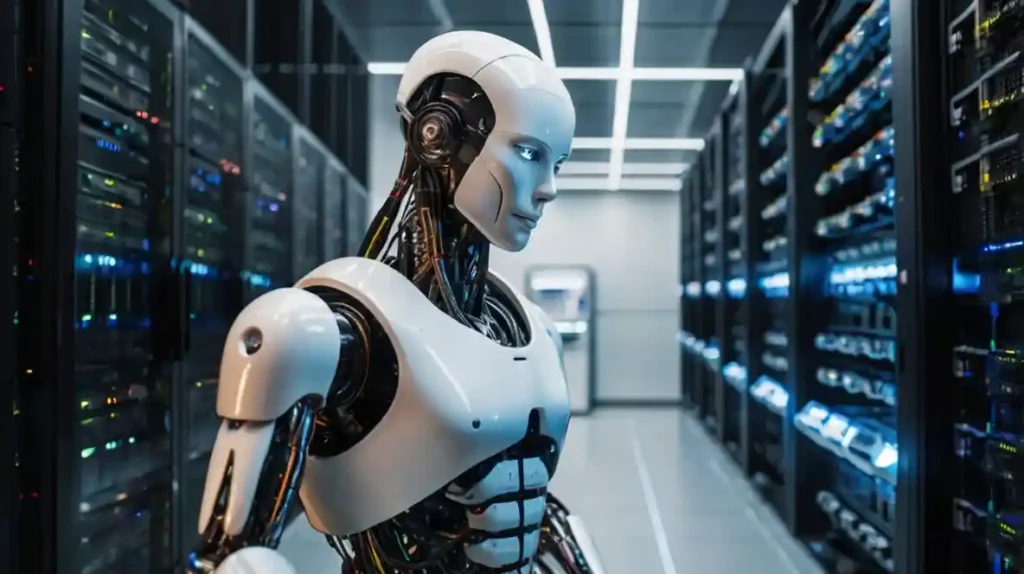
The Reality Check: Can AI Truly Replace Human Talent?
Why AI Can’t Replace Human Creativity and Innovation
In a world where technology is changing the very limits of what is possible, one thing is sure: no machine can replicate the essence of human creativity. Though AI can analyze patterns, crunch data, and even compose lines of code, it cannot produce that spark that turns ideas into groundbreaking innovations. Tech jobs often require more than technical precision-they demand imagination, intuition, and the ability to think outside the box.
Consider software design: AI might streamline processes, but it can’t conceptualize a user-friendly interface born from understanding human behavior. Similarly, cybersecurity experts don’t just fight breaches they anticipate threats in ways no algorithm could predict. These roles rely on empathy, strategic thinking, and adaptability, areas where humans continue to shine.
Fields such as game development, UX design, and strategic planning best demonstrate human creativity at its best. AI might help, but it can’t dream up the next revolutionary app or craft an emotionally resonant gaming experience. After all, innovation is born not from perfection but from trial, error, and the uniquely human capacity for resilience.
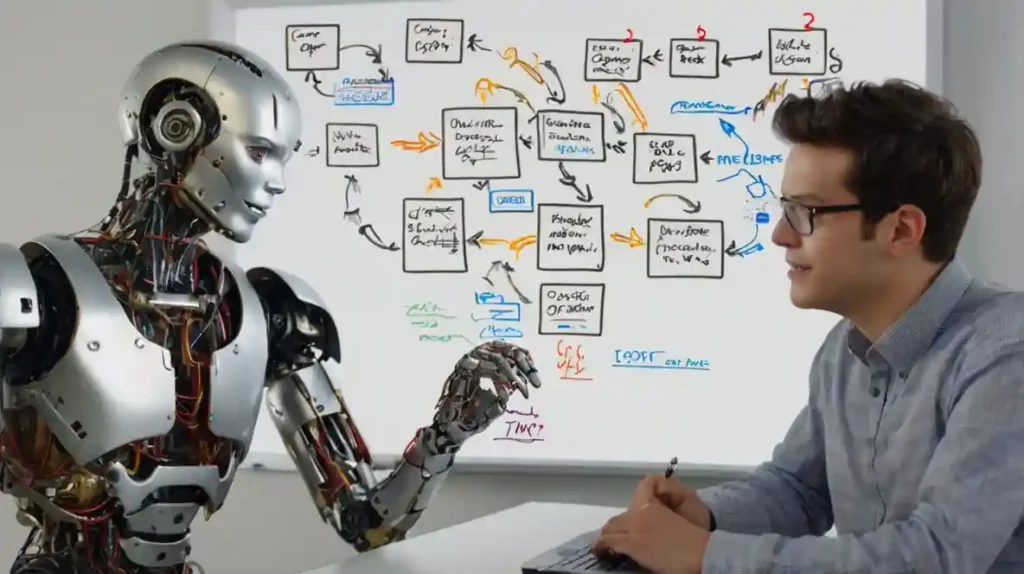
Will AI Take Over Tech Jobs Entirely? Here’s the Truth
One does not take cognizance of a very significant reality: AI isn’t perfect. It needs data, but then what does one do if the data are either wrong or tainted? It can’t apply emotional intelligence toward more complex human interplay and moral judgment of what the act is going to imply, or when ambiguous, choose how to move. For example,
- Data Dependence: AI needs well-curated and accurate data, without which an AI system crumbles.
- Lack of Emotional Intelligence: AI cannot mediate a team conflict or inspire trust.
- Ethical Concerns: Machines cannot understand the moral implications of their decisions, leaving room for unintended consequences.
The tech world is embracing the AI not to compete with each other but with each other. AI can automate repetitive work and leave human beings to other strategic and creative work. Imagine a programmer using AI tools to debug code faster or an IT analyst that can leverage machine learning to alert him for anomalies in real-time. These are not replacements; these are partnerships.
Ultimately, the question is not “Will AI replace tech jobs?” but “How can we work with AI to amplify human capacity?” The future belongs to the people who will learn how to work in cooperation with technology: using its power while being firm in that which makes us only human.
Tech Jobs Most Affected by AI: Should You Worry?
Jobs at Risk: The Vulnerable Roles in Tech
Not all tech jobs are the same when it comes to AI. Some positions, especially those that involve repetitive tasks, are more vulnerable to automation. For instance, data entry specialists, who spend hours entering and organizing information, are highly at risk since AI systems like RPA can do the same thing much faster and with fewer errors.
Similarly, quality assurance (QA) testing once done manually is now being increasingly taken over by AI-driven tools that can run simulations and identify bugs in seconds. Even basic IT support roles are vulnerable, with AI-powered chatbots stepping in to handle routine troubleshooting tasks. These jobs are at risk not because they’re unimportant but because they are easier for AI to replicate.
But whereas these roles change or shrink, it’s always important to remember that technology has always evolved and so have the opportunities that accompany it.
Emerging Tech Roles That AI Can’t Replace
For every job that AI transforms, new opportunities open up those that require uniquely human qualities: ethical reasoning, creativity, strategic thinking. And as AI moves further into the workplace, demand for specialists is created who could guide its development and ensure responsible use.
Emerging roles among them are the following:
- AI Ethics Specialists: Professionals who grapple with moral implications of AI, ensuring that algorithms are both fair and accountable.
- Machine Learning Engineers are the ones involved in designing as well as refinement of AI, hence require having both programming knowledge and problem-solving.
- AI Trainer is a type of person teaching an AI about better understanding from human inputs toward making it effective for machines versus real-world application.
- Hybrid roles are also emerging, where AI tools are used in tandem with human experts for specific tasks. An example of this is the cybersecurity analyst, who now makes judicious decisions in support of an AI system that alerts them of possible threats.
It’s not just, “Will AI replace tech jobs?” but also “What new doors will AI open?” This will be determined by the degree of adaptation and upskilling. Tech professionals should be ahead in this interestingly changing game, and there should be a bright future for both human and artificial intelligences as well.
How to Future-Proof Your Career in the Age of AI
Upskilling: The Key to Staying Relevant
In an age of AI, this means being ahead is a lifelong learner. In this regard, learning AI-related skills, be it Python, machine learning, or data analysis, is not an option, but a must. These are no longer “nice-to-haves” but integral to many roles in tech.
Thankfully, resources are abundant. Platforms like Coursera, edX, and Google’s AI certifications offer free or affordable courses to kickstart your journey. Even beginner-friendly platforms like Kaggle provide hands-on projects to build confidence.
Take small, actionable steps:
- Dedicate 30 minutes daily to learning a new AI-related skill.
- Join communities like GitHub or Reddit to engage with others on a similar path.
- Build a simple project using Python start small, but start today.
Embracing AI as Your Co-Worker, Not Your Competition
So why be afraid of AI? Think of AI as the powerful co-worker who can get the routine job done, letting you focus on creative, strategic work. Think of AI helping you write that code snippet or debug that nasty issue or compose that technical document for you with AI tools such as ChatGPT.
Practical ways to use AI in your role:
- Automation: Streamline workflows using tools like Zapier or Python automation scripts.
- Data Insights: Use AI for data visualization and predictive analytics.
- Idea Generation: Brainstorm with generative AI for creative problem-solving.
A growth mindset is your greatest ally here. Instead of worrying about what AI might replace, think about what it will enable. Fear shrinks opportunities; curiosity expands them.
Here’s a revised version with emotional depth and a human touch:

Will AI Take Over Tech Jobs?
The world changes fast, and with more use of artificial intelligence, many people ask hard questions concerning this revolution. The biggest question is whether AI will take up many technical positions. While feeling uncertain is understandable, in reality, it’s not about fighting between humans and AI. In fact, it is just a better way of working together.
The Future of Work: AI and Humans Working Together
Will AI Take Over Tech Jobs Completely? The Collaborative Future
The idea that AI will supplant humans entirely is more science fiction than fact. In many areas, AI is not replacing people but augmenting what we do. Take the example of software development. Tools like GitHub Copilot assist developers by suggesting code to speed up the task while leaving creative decisions to human beings. AI analyzes patient data in healthcare and helps doctors in making faster, more accurate diagnoses.
Ethical AI development will, however, be crucial in this collaboration thriving. It involves developing systems that improve human capacity and not hinder it. That is to say, through a priority on transparency and fairness, opportunities can be ensured by AI, not eroded.
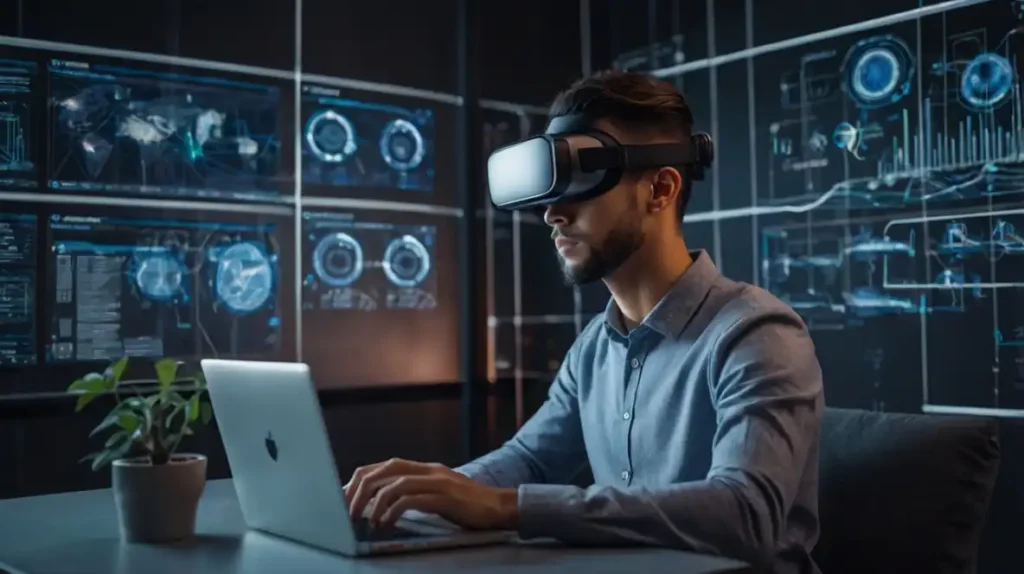
The Bright Side: How AI Could Make Work Better for Everyone
Imagine a world without mundane, monotonous daily tasks. This is the future of AI, the promise it carries: it’s the elimination of routine jobs in data entry and simple debugging for more important work.
Imagine how that translates:
- More time to innovate: Use it to solve something meaningful.
- A better work-life balance: Set the tedium aside to be done by the machines.
- Boosted creativity: Use the tool to brainstorm faster and build it faster.
This is not a dystopian future. This is a hopeful future where technology empowers us to do what we love and excel at.
Conclusion
So, does AI trump humans in tech jobs? The answer is somewhat nuanced. AI will change the way that people work, but there is no need to fear because AI is not here to eliminate jobs requiring human ingenuity, empathy, and adaptability.
Learn a new AI skill. Start small but start now. See AI not as a competitor but as a partner in building a better workplace and a brighter future. Change is inevitable but growth is a choice.
The future of work is about machines and people doing together something neither could have done alone, not about replacement. Let us take this as a moment of shaping that future.
Macrotechy offers up-to-date tech news and practical solutions, making technology simple and accessible for everyone.
